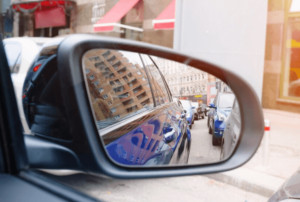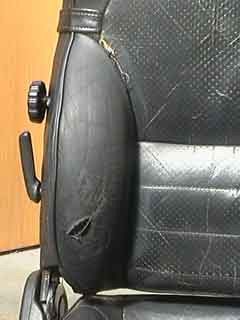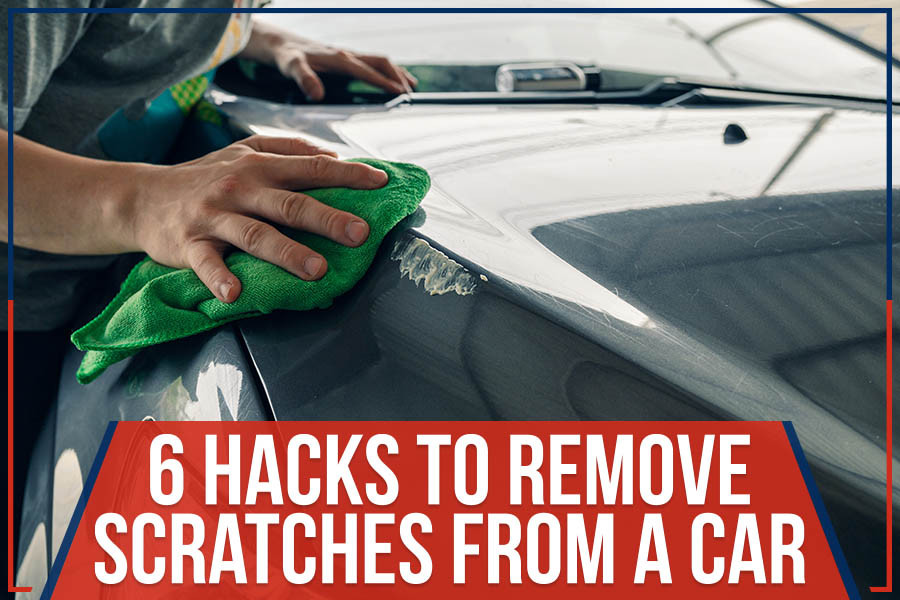How Much Does It Cost to Fix Scratches on a Car?
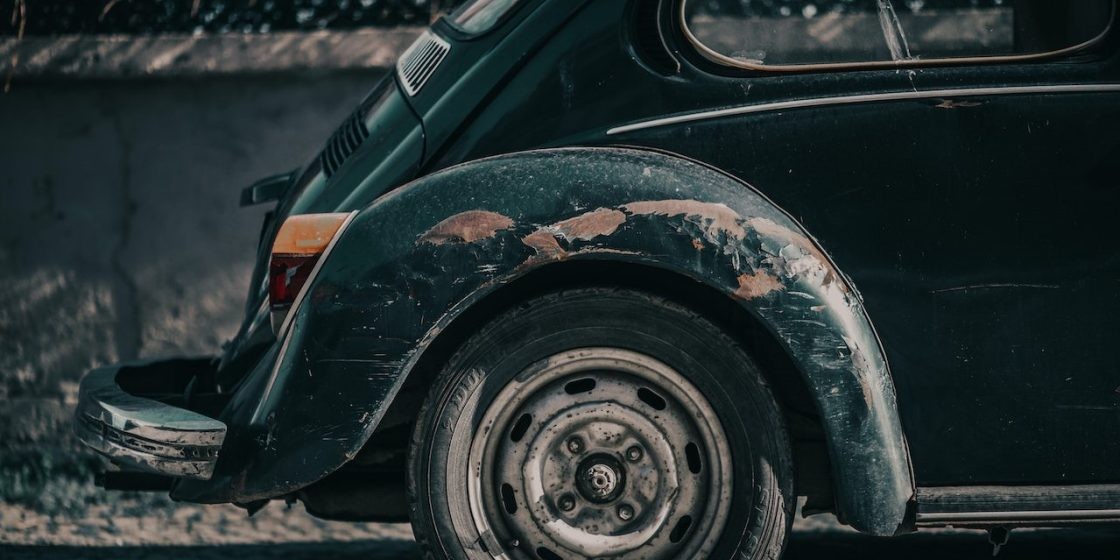
Fixing car scratches can range from a simple DIY buff-out to a professional paint job, with costs varying widely. At CARDIAGTECH.NET, we understand the frustration of car scratches and aim to provide you with a comprehensive guide to understanding the costs involved in repairing them, alongside solutions to keep your vehicle looking its best. Explore various scratch repair options and discover how to maintain your car’s flawless finish, delving into paint correction techniques and preventative measures.
1. Understanding the Cost Factors of Car Scratch Repair
How much does it really cost to fix those unsightly scratches on your car? The cost to fix scratches on your car hinges on several factors, including the scratch’s depth, the area it covers, and the repair method needed. Understanding these factors will help you estimate the expenses involved in restoring your vehicle’s appearance, as the repair cost can range from a quick DIY fix to an intensive professional service.
- Scratch Depth: The deeper the scratch, the more costly the repair. Minor surface scratches might only affect the clear coat, while deeper ones can penetrate the paint and even reach the metal.
- Surface Area: The larger the scratched area, the more time and materials are needed for the repair, influencing the overall cost.
- Repair Method: Depending on the scratch severity, the repair method may range from simple polishing to complex repainting, each with its own price point.
- Type of Car: Luxury brands typically have higher costs than standard models due to specialized paints and more complicated bodywork.
- Location: Costs can vary widely by geographic location, with urban areas often having higher labor rates than rural ones.
- Paint Matching: The cost can increase if the paint color is rare or requires custom mixing for a perfect match.
2. Decoding Scratch Types: Scuffs vs. Deep Scratches
What are the different types of car scratches and how do they affect the repair cost? Car scratches can be broadly classified into scuffs, clear coat scratches, paint scratches, and deep scratches, each requiring a different approach and investment. The type of scratch dictates the repair complexity, the materials required, and ultimately, the cost.
- Scuffs: These are light surface abrasions that usually affect only the clear coat. They’re often caused by minor brushes and can usually be buffed out easily with a polishing compound.
- Clear Coat Scratches: These penetrate the clear coat layer but don’t reach the actual paint. They require more work than scuffs, often involving sanding and polishing to smooth out the surface.
- Paint Scratches: These go through the clear coat and into the paint layer, necessitating paintwork to restore the color and protect the underlying layers.
- Deep Scratches: These are the most severe, penetrating all layers of paint to expose the metal or plastic beneath. Repairing these typically involves filling, sanding, priming, and repainting the affected area.
 Close up of car scratches, illustrating different levels of damage to the paint
Close up of car scratches, illustrating different levels of damage to the paint
3. DIY Scratch Repair: Can You Fix It Yourself?
Is it possible to fix car scratches yourself and save money? For minor scuffs and clear coat scratches, DIY repair is feasible, offering a cost-effective alternative to professional services. Equip yourself with the right tools and knowledge, and you can achieve satisfactory results, saving money and gaining a sense of accomplishment.
- Assessing the Damage: Before starting, determine if the scratch is shallow enough for a DIY fix. If it hasn’t penetrated the paint layer, you’re likely good to proceed.
- Essential Tools: Gather items like a scratch repair kit, fine-grit sandpaper, polishing compound, microfiber cloths, and a spray bottle with water. CARDIAGTECH.NET offers a variety of these tools to assist you.
- Step-by-Step Guide: Clean the area, lightly sand the scratch, apply the repair compound, polish, and wax to protect the area.
- Cost Savings: DIY repair can cost as little as $20 to $50, significantly less than professional services.
4. Professional Scratch Repair: When to Call the Experts
When is it necessary to seek professional help for car scratch repair? When scratches penetrate deep into the paint layers, or if you’re uncomfortable performing the repair yourself, professional scratch repair becomes essential. Professionals have the tools, skills, and experience to restore your car’s finish to its original condition.
- Deep Scratches: If the scratch exposes metal or plastic, professional intervention is needed to prevent rust and ensure proper paint adhesion.
- Extensive Damage: Large or complex scratches may require specialized techniques and equipment that are beyond the scope of DIY repairs.
- Matching Paint: Professionals can precisely match your car’s paint color, ensuring a seamless repair that blends perfectly with the surrounding area.
- Quality Assurance: Professional repairs often come with a warranty, providing peace of mind and ensuring long-lasting results.
5. Cost Breakdown: DIY vs. Professional Repair
What is the actual cost difference between fixing scratches at home and hiring a professional? The cost difference between DIY and professional scratch repair can be significant, depending on the scratch severity and the extent of the damage. Understanding the cost breakdown can help you make an informed decision based on your budget and expertise.
| Repair Type | Description | Estimated Cost |
|---|---|---|
| DIY Scratch Repair | Minor scuffs and clear coat scratches repaired with a kit and some elbow grease | $20 – $50 |
| Professional Repair | Deep scratches, extensive damage, or complex paint matching | $150 – $1,500 |
6. The Price Tag: Estimated Costs for Different Scratch Depths
How much will it cost to repair different depths of scratches, from minor scuffs to deep gouges? The price tag for scratch repair varies significantly based on the depth and severity of the damage, with minor scuffs being the cheapest to fix and deep gouges requiring more extensive and costly repairs. Understanding these costs can help you budget accordingly and choose the most appropriate repair option.
- Scuffs: These superficial scratches can often be removed with a polishing compound and a microfiber cloth, costing as little as $20 for materials.
- Clear Coat Scratches: Repairing these scratches may involve sanding, polishing, and applying a clear coat, with costs ranging from $150 to $300 at a professional auto body shop.
- Paint Scratches: These require paintwork and may involve repainting the entire panel, with costs ranging from $400 to $1,000, depending on the size and complexity of the repair.
- Deep Scratches: Repairing deep scratches that expose the metal or plastic beneath can cost between $800 and $1,500, as they require extensive bodywork and repainting.
7. Location Matters: How Regional Prices Affect Scratch Repair Costs
Do scratch repair costs differ depending on where you live? Yes, scratch repair costs can vary significantly based on your geographic location, with urban areas typically having higher labor rates and material costs than rural areas. Factors such as local demand, competition, and the cost of living can influence the overall price of scratch repair services.
- Urban Areas: Higher labor rates and material costs in cities can drive up the price of scratch repair.
- Rural Areas: Lower overhead costs in rural areas may result in more affordable scratch repair services.
- Coastal Regions: Exposure to salt and humidity in coastal regions can accelerate corrosion, potentially increasing the cost of repairing deep scratches.
- Regional Competition: Areas with a high concentration of auto body shops may offer more competitive pricing, benefiting consumers.
8. Paint Type and Color: Impact on Scratch Repair Expenses
How does the type and color of my car’s paint affect the cost of scratch repair? The type and color of your car’s paint can significantly impact the cost of scratch repair, with specialty paints and custom colors requiring more time and expertise to match and blend seamlessly. Factors such as the paint’s rarity, complexity, and the need for custom mixing can all contribute to higher repair expenses.
- Metallic Paints: These paints contain metal flakes that create a shimmering effect, making them more challenging to match and blend.
- Pearlescent Paints: These paints contain ceramic particles that create a unique depth and luster, requiring specialized techniques to replicate.
- Custom Colors: If your car has a custom paint job, the repair may involve custom mixing, which can be more expensive due to the additional time and materials required.
- Tri-Coat Paints: These paints involve three layers of paint, including a base coat, a mid-coat, and a clear coat, making them more complex and costly to repair.
9. Hidden Costs: What Else to Consider Beyond the Initial Estimate
What are some hidden costs that might arise during car scratch repair? Beyond the initial estimate, several hidden costs can arise during car scratch repair, including unforeseen damage, paint blending, and additional bodywork. Being aware of these potential expenses can help you avoid surprises and budget accordingly.
- Unforeseen Damage: During the repair process, technicians may discover additional damage, such as rust or corrosion, that was not initially visible.
- Paint Blending: To ensure a seamless repair, technicians may need to blend the new paint with the surrounding area, which can add to the overall cost.
- Additional Bodywork: If the scratch has caused structural damage, additional bodywork may be required to restore the vehicle’s integrity.
- Clear Coat Application: Applying a clear coat over the repaired area can protect the paint and enhance its appearance, but it may also add to the cost.
10. Maintaining a Scratch-Free Car: Preventative Measures
How can I prevent car scratches and reduce future repair costs? Preventing car scratches is the best way to reduce future repair costs and maintain your vehicle’s appearance. Simple measures such as parking strategically, washing your car regularly, and applying protective coatings can go a long way in preventing scratches and keeping your car looking its best.
- Park Strategically: Avoid parking near shopping carts, other vehicles, or areas with heavy foot traffic to minimize the risk of scratches.
- Wash Regularly: Regularly washing your car can remove dirt, debris, and other contaminants that can cause scratches over time.
- Apply Protective Coatings: Applying wax, sealant, or ceramic coatings can create a protective layer that shields your car’s paint from scratches.
- Use Car Covers: When parking outdoors, use a car cover to protect your vehicle from scratches, dings, and other environmental hazards.
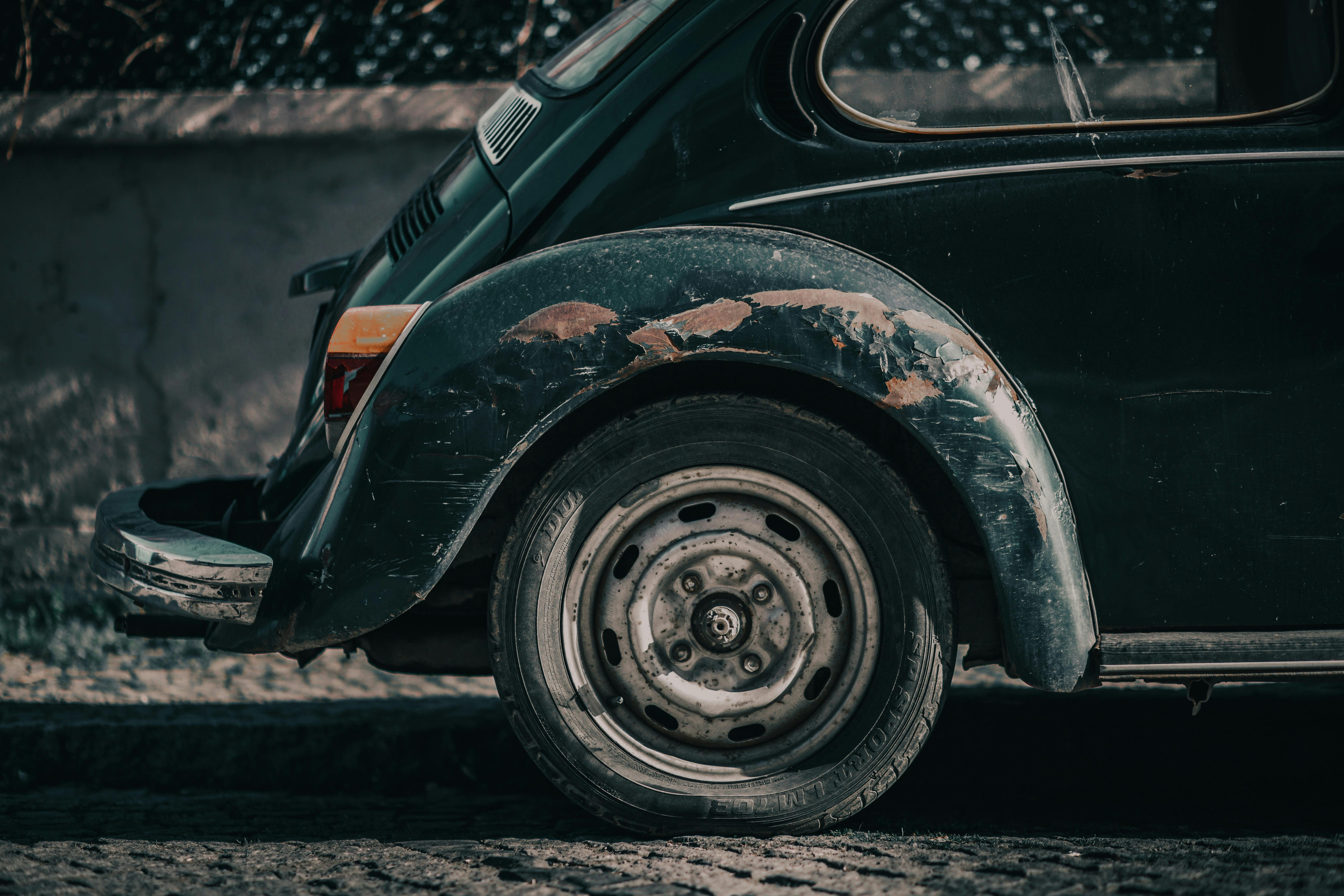 Car being washed, demonstrating preventative maintenance to avoid scratches
Car being washed, demonstrating preventative maintenance to avoid scratches
11. Insurance Claims: When to File for Scratch Repair
Is it worth filing an insurance claim for car scratch repair? Filing an insurance claim for car scratch repair depends on the extent of the damage, your deductible, and the potential impact on your insurance rates. Assessing these factors can help you determine whether filing a claim is the right decision.
- Damage Extent: If the scratch repair costs exceed your deductible, filing a claim may be worthwhile.
- Deductible Amount: If your deductible is high, it may be more cost-effective to pay for the repair out of pocket.
- Rate Impact: Filing a claim may increase your insurance rates, especially if you have a history of previous claims.
- Policy Coverage: Review your insurance policy to understand the coverage for scratch repair and any exclusions that may apply.
12. Choosing the Right Repair Shop: Finding a Trustworthy Technician
How do I find a reputable and trustworthy car scratch repair shop? Finding a reputable car scratch repair shop is crucial to ensuring quality workmanship and fair pricing. Look for shops with experienced technicians, positive reviews, and a commitment to customer satisfaction.
- Seek Recommendations: Ask friends, family, or colleagues for recommendations on trustworthy repair shops in your area.
- Read Online Reviews: Check online review platforms to gauge the reputation and quality of different repair shops.
- Check Credentials: Verify that the repair shop is licensed and insured, and that its technicians are certified.
- Get Multiple Estimates: Obtain estimates from several different repair shops to compare pricing and services.
13. Negotiating Prices: Tips for Getting the Best Deal
How can I negotiate the price of car scratch repair to get the best possible deal? Negotiating prices for car scratch repair can help you save money and get the best possible deal. Research average repair costs, get multiple estimates, and be prepared to negotiate based on your budget and needs.
- Research Average Costs: Before negotiating, research the average cost of scratch repair in your area to get a sense of fair pricing.
- Get Multiple Estimates: Obtain estimates from several different repair shops to compare pricing and services.
- Highlight Competitor Offers: If you receive a lower estimate from a competitor, use it as leverage to negotiate a better price.
- Ask for Discounts: Don’t be afraid to ask for discounts or special offers, especially if you’re a repeat customer or paying in cash.
14. Touch-Up Paint: A Quick Fix for Minor Imperfections
Is touch-up paint an effective solution for fixing small car scratches? Touch-up paint can be a quick and effective solution for fixing minor car scratches, provided that you choose the right color and apply it carefully. However, it’s important to understand its limitations and use it only for superficial damage.
- Color Matching: Ensure that the touch-up paint matches your car’s color code to achieve a seamless repair.
- Application Technique: Apply the touch-up paint in thin, even layers, allowing each layer to dry before applying the next.
- Blending: After applying the touch-up paint, use a blending solution to smooth out the edges and create a seamless transition.
- Limitations: Touch-up paint is best suited for small, superficial scratches and may not be effective for repairing larger or deeper damage.
15. Paintless Dent Repair (PDR): An Alternative for Certain Scratches
When is paintless dent repair (PDR) a viable option for fixing car scratches? Paintless dent repair (PDR) is a viable option for fixing certain types of car scratches, particularly those that are accompanied by dents or creases in the metal. PDR involves using specialized tools to massage the metal back into its original shape without damaging the paint.
- Dents and Creases: PDR is most effective for repairing scratches that are accompanied by dents or creases in the metal.
- Paint Condition: PDR is only suitable if the paint is intact and not cracked or peeling.
- Access: PDR requires access to the back of the panel, so it may not be possible for all types of scratches.
- Cost Savings: PDR can be more cost-effective than traditional bodywork, especially for minor damage.
16. Ceramic Coatings: Long-Term Scratch Protection
How effective are ceramic coatings in protecting my car from scratches? Ceramic coatings offer long-term scratch protection by creating a durable, hydrophobic layer that shields your car’s paint from scratches, swirl marks, and other environmental hazards. While they may not prevent all scratches, they can significantly reduce the risk of damage and make your car easier to clean.
- Scratch Resistance: Ceramic coatings provide a hard, protective layer that is more resistant to scratches than traditional waxes or sealants.
- Hydrophobic Properties: Ceramic coatings repel water and dirt, making your car easier to clean and reducing the risk of water spots and stains.
- UV Protection: Ceramic coatings protect your car’s paint from UV damage, preventing fading and oxidation.
- Longevity: Ceramic coatings can last for several years, providing long-term protection and reducing the need for frequent waxing or polishing.
17. Car Scratch Repair Kits: What to Look For in a Quality Product
What should I look for when choosing a car scratch repair kit for DIY fixes? When choosing a car scratch repair kit for DIY fixes, look for a quality product that includes all the necessary tools and materials, such as sandpaper, polishing compound, applicators, and microfiber cloths. Read reviews, compare prices, and choose a kit that is appropriate for the type and severity of the scratches you’re trying to repair.
- Comprehensive Contents: Look for a kit that includes all the necessary tools and materials, such as sandpaper, polishing compound, applicators, and microfiber cloths.
- Color Matching: Ensure that the kit includes touch-up paint that matches your car’s color code to achieve a seamless repair.
- Instructions: Choose a kit that includes clear, step-by-step instructions to guide you through the repair process.
- Customer Reviews: Read reviews from other customers to gauge the quality and effectiveness of the kit.
18. The Impact of Scratches on Your Car’s Resale Value
How do car scratches affect my car’s resale value and what can I do about it? Car scratches can negatively impact your car’s resale value by detracting from its overall appearance and suggesting a lack of maintenance. Repairing scratches before selling your car can help increase its value and attract potential buyers.
- Appearance: Scratches detract from your car’s appearance, making it look older and less well-maintained.
- Perception: Potential buyers may perceive scratches as a sign of neglect, assuming that the car has not been properly cared for.
- Value Reduction: Scratches can reduce your car’s resale value by hundreds or even thousands of dollars, depending on the severity and extent of the damage.
- Repair Benefits: Repairing scratches before selling your car can help increase its value and attract potential buyers.
19. Leasing vs. Owning: Managing Scratches on a Leased Vehicle
How should I handle car scratches differently on a leased vehicle compared to one I own? When dealing with scratches on a leased vehicle, it’s important to consider the terms of your lease agreement, which may require you to repair any damage before returning the car. Failing to do so could result in costly fees and penalties.
- Lease Agreement: Review your lease agreement to understand the requirements for returning the vehicle in good condition.
- Damage Assessment: Assess the scratches to determine if they exceed the allowable wear and tear limits specified in your lease agreement.
- Repair Options: If the scratches need to be repaired, consider your options, such as DIY repair, professional repair, or paying for the damage upon returning the vehicle.
- Cost Comparison: Compare the cost of repairing the scratches with the potential fees and penalties for returning the vehicle with damage.
20. Beyond Aesthetics: The Importance of Addressing Scratches Promptly
Why is it important to address car scratches promptly, beyond just the cosmetic aspect? Addressing car scratches promptly is important beyond just the cosmetic aspect, as scratches can expose the metal beneath the paint to moisture and other elements, leading to rust and corrosion. Repairing scratches promptly can prevent further damage and maintain the structural integrity of your vehicle.
- Rust Prevention: Scratches expose the metal beneath the paint to moisture and other elements, leading to rust and corrosion.
- Structural Integrity: Rust and corrosion can weaken the metal and compromise the structural integrity of your vehicle.
- Safety: Structural damage can affect your car’s safety in the event of an accident.
- Long-Term Costs: Repairing scratches promptly can prevent further damage and save you money on costly repairs in the long run.
CARDIAGTECH.NET is your go-to source for auto repair solutions, offering a wide range of tools and equipment to help you maintain your vehicle’s appearance and value. Don’t let scratches diminish your car’s beauty or lead to further damage.
 Tools and equipment for car scratch repair available at CARDIAGTECH.NET
Tools and equipment for car scratch repair available at CARDIAGTECH.NET
Contact us today at 276 Reock St, City of Orange, NJ 07050, United States, or via Whatsapp at +1 (641) 206-8880, or visit our website at CARDIAGTECH.NET for expert advice and high-quality products. Our team of professionals is ready to assist you in finding the perfect tools for scratch repair and preventative maintenance. Remember, a well-maintained car not only looks great but also retains its value. Act now and keep your vehicle in top condition with CARDIAGTECH.NET’s comprehensive solutions for vehicle aesthetics, paint maintenance and protective measures.
Frequently Asked Questions (FAQ)
1. How much does it generally cost to fix a scratch on a car?
The cost to fix a scratch on a car varies widely depending on the depth and size of the scratch, ranging from $20 for a DIY kit to $1,500 for professional repair of deep scratches.
2. Can I fix a car scratch myself, or do I need a professional?
You can fix minor scratches yourself with a DIY kit, but deeper scratches that penetrate the paint layers require professional repair.
3. What are the different types of car scratches and how are they fixed?
The main types of car scratches are scuffs, clear coat scratches, paint scratches, and deep scratches, each requiring different repair methods.
4. How does the location of the scratch affect the repair cost?
The location of the scratch can affect the repair cost if it is in a difficult-to-reach area or requires disassembly of parts.
5. Does the color of my car affect the cost of scratch repair?
Yes, the color of your car can affect the cost of scratch repair, especially if it is a rare or custom color that requires specialized mixing.
6. Is it worth filing an insurance claim for car scratch repair?
Filing an insurance claim for car scratch repair depends on your deductible and the extent of the damage.
7. How can I prevent scratches on my car in the first place?
You can prevent scratches on your car by parking strategically, washing it regularly, and applying protective coatings.
8. What is paintless dent repair (PDR) and when is it appropriate?
Paintless dent repair (PDR) is a method of removing dents without damaging the paint, and it is appropriate for scratches accompanied by dents.
9. How does a ceramic coating protect my car from scratches?
A ceramic coating provides a hard, protective layer that is more resistant to scratches than traditional waxes or sealants.
10. What should I look for in a quality car scratch repair kit?
Look for a kit that includes all the necessary tools and materials, such as sandpaper, polishing compound, applicators, and microfiber cloths.

